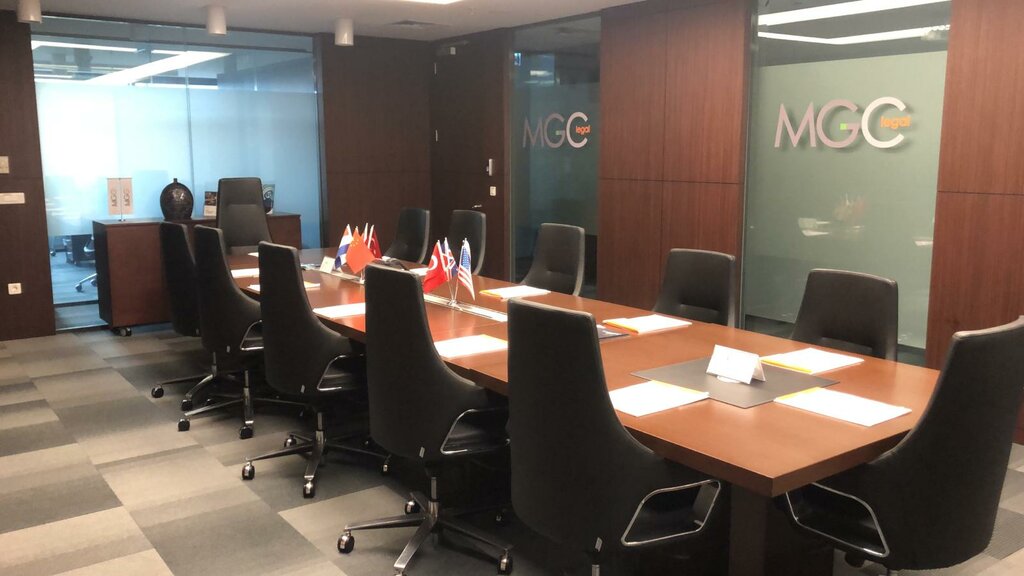Your Partner
in Legal Success
| Reading Time: 5 Minutes
What Changes Will The Amended Press Law Bring?

The “Law Amending the Press Law and Some Laws”, known as the “Combating Disinformation Regulation“, entered into force after being published in the Official Gazette of Türkiye.
Lawyers of MGC Legal have reviewed the “Law Amending the Press Law and Some Laws” and the new Press Law, published in the Official Gazette of Türkiye, in which the regulations have been recently introduced in terms of Information and Technology Law and Criminal Law. Here are the details…
Published in the Official Gazette of Türkiye, dated 18.10.2022, with the “Law Amending the Press Law and Some Laws“, many innovations have been introduced within the scope of press organs, especially internet journalism and social media.
In this context, the first thing to be mentioned is the 3rd and 4th paragraphs of Article 4 of Press Law No. 5187, titled “Mandatory Information”.
With the addition of paragraph 3, information such as the location of management, owner, and representative requested in periodicals, as well as contact information such as the workplace address, trade name, and e-mail address on internet news sites, are required to be kept under the communication heading in a way that internet users can directly access.
In addition, with the 4th paragraph added, it is obligatory to write the date of the news’s first presentation and its update date on the news sites.
As it is known, the publisher is obliged to deliver two signed copies of any letter they have written to the Office of the Chief Public Prosecutor per Article 10 of Law No. 5187. With the new regulation, the related delivery obligation has been foreseen for the internet news sites, and the failure to comply with the delivery and preservation obligation stipulated in Article 17 has also been binding for the internet news sites.
According to article 17, the publisher and/or web news site manager who does not fulfill this obligation is punished with a heavy fine between ₺300.000.000 and ₺1.000.000.000. Due to these heavy fines, the obligation to surrender has become very important for internet news sites with the new regulation.
In the Law, amendments were made to the cited articles of the laws such as the Press Announcement Law, the Public Procurement Law, and the Execution and Bankruptcy Law; amendments were also made to the Law on obtaining press cards, cancellation of press cards and the Organization of The Press Advertisement Institution.
One of the most significant changes brought is undoubtedly the changes made about social network providers. According to the regulation;
- In case the representative of the social network provider is a real person, it has become mandatory for this person to be a resident of Turkey and a Turkish citizen,
- In addition, if the daily access from Turkey is more than ten million, the real or legal person representative determined by the social network provider from abroad, without prejudice to the responsibilities of the social network provider; is fully authorized and responsible for technical, administrative, legal and financial aspects. If this representative is a legal person, a branch with the status of a capital company established directly by the social network provider must be established,
- At the same time, regarding the social network provider, it reports to the institution on every subject, such as title tags, featured content, being impartial to users, advertising algorithms, suggestions offered to users, and especially advertising information. These have been made mandatory to present on the website.
It is clear that with these regulations, more control over the social network provider is adopted.
Sexual abuse of children regulated in the Turkish Penal Code, spreading misleading information to the public, disrupting the unity and integrity of the state, crimes against the constitutional order and the functioning of this order, crimes against state secrets and espionage, internet traffic taken by the prosecutor’s office or court in crimes in cases where the band is narrowed, the social network provider is obliged to take the necessary measures within 4 hours at the latest after the notification. In case of non-compliance with the relevant obligations, it is stipulated that some sanctions, such as an advertising ban of up to six months, may be imposed on social network providers.
Within the scope of the new regulation, some changes were also made in Electronic Communications Law No. 5809. Interpersonal electronic communication services, including voice, written, and visual communication, are defined as inter-network services. The service provider is defined as the natural or legal person providing the services within the scope of this definition. These services are offered to subscribers and users with internet access, independently of the operators or the internet service provided, using publicly available software.
Especially with the additions to Article 60, administrative sanctions to be applied to over-network service providers who violate the provision of Article 9 or provide services without authorization have been introduced, and new sanctions have tried to provide more deterrence.
With article 29 of the Law on the Amendment of Some Laws and the Press Law No. 7418, which entered into force with its publication in the Official Gazette of Türkiye dated 18.10.2022, and article 217/A added to the Turkish Penal Code No. 5237, the Crime of Publicly Spreading Misleading Information to the Public was regulated.
Anyone who publicly disseminates false information about the country’s internal and external security, public order, and general health in a way that is suitable for disturbing the public peace, with the sole motive of creating anxiety, fear, or panic among the public, is punished. Since the crime is regulated between 1 and 3 years, it is outside the limit of the prohibition of arrest in Article 100 of the Code of Criminal Procedure. Therefore, it is possible to apply protection measures such as arrest and judicial control.
In the second paragraph of the article, it is regulated that the penalty will be increased if the perpetrator commits the crime by hiding his true identity or within the framework of the activities of an organization. In case of committing these crimes with accounts called “fake accounts” and/or “troll accounts” in social media, the penalty will be increased within the framework of this provision.
The crime is a concrete, dangerous crime that can be committed with special intent. This situation is clearly explained in the justification of the article. This means that the perpetrator must commit the said acts simply for the sole purpose of creating anxiety, fear, or panic among the public. Otherwise, in the absence of one of these motives in the perpetrator, it cannot be accepted that the crime occurred even when it is thought that the action complies with the provision.
In addition, it was decided that the act in question should be committed in a way that would disturb the public peace. In other words, the fact that the act that is thought to constitute a crime took place alone will not be sufficient, and it must also be accepted without a doubt that this act is suitable for disturbing public peace. Otherwise, it will not be possible to be punished for this crime.
During the law proposal process, many criticisms have been made, such as the fact that the legal value sought to be protected by the crime in question is already protected by other crimes and that it is very difficult to determine the motive and concrete danger sought for the crime without leaving any room for doubt, and that the crime has the nature of abolishing the freedom of expression. Although it cannot be predicted at the moment how judicial subjects will interpret the abstract expressions in the crime, it is thought that the provision will be better understood as the practice and application are gained.
Click here for other Official Gazette Publications.



